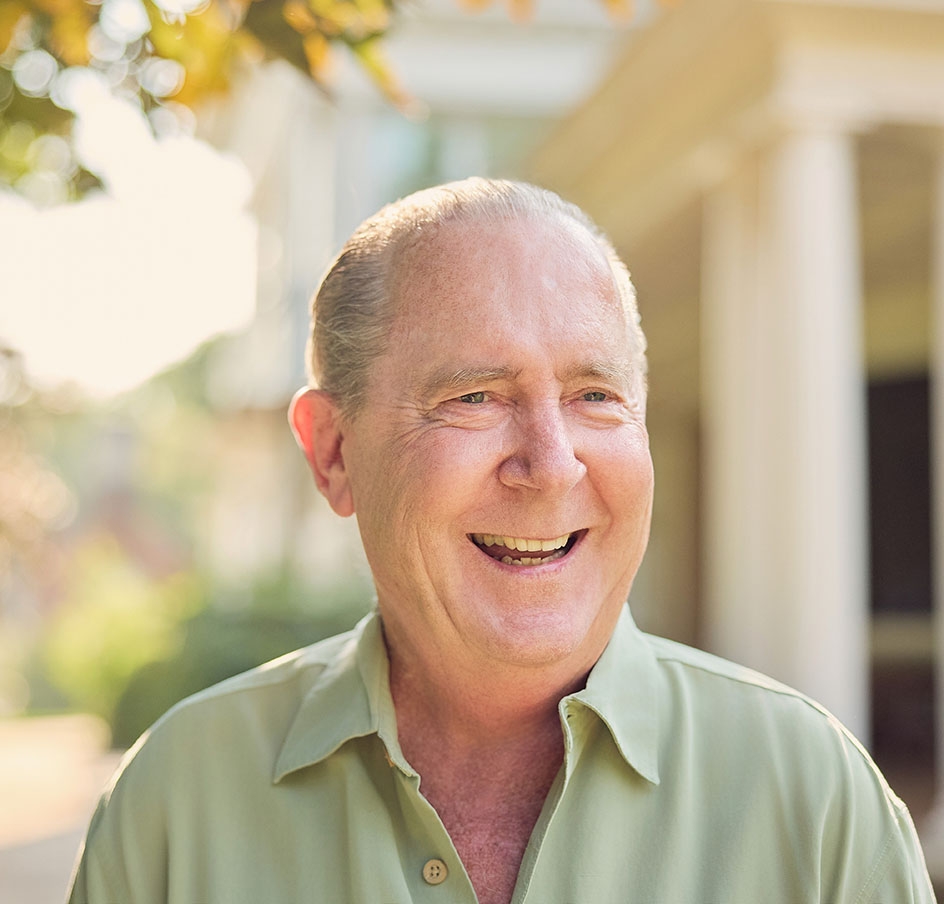Robin C. remembers being sleep deprived and exhausted as far back as the mid-’90s. But she thought that was just part of parenthood.
“With two young children under age 2, not sleeping felt like it was normal,” she says.
Although Robin figured her sleep would improve as her kids got older, things seemed to get worse — not better.
“I started experiencing hallucinations, OCD-like tendencies, impaired ability with cognitive functions and memory loss, and physically my body started to feel like I never slept,” she says.
Over time, Robin was able to grab a few hours of sleep here or there, but she never truly rested. She saw numerous doctors and was diagnosed with a series of mental health conditions. But the medications for those conditions made her sleep problems worse. And no one ever really had an answer for why she couldn’t sleep.
When it comes to making big changes or getting the help they need, some people talk about a wake-up call or the truth hitting them right in the face. For Robin, it was a little different.
“I punched my husband in the face in the middle of the night,” she recalls.
Expert diagnosis for disordered sleeping
That night in 2005 was a very painful call to action. Robin had been dreaming she was pounding a kitchen table. But instead, she was actually hitting her husband, Peter. She broke his nose and deviated his septum.
“There’s a joke at my house that he wears a hockey mask to bed,” she says. Both Robin and Peter knew it was time to figure out exactly what was causing her sleep problems.
First, they started with their family physician near their Honey Brook, Penn., home. That provider sent them to a neurologist, who ran numerous tests and tried to put the pieces of the puzzle together.
“I’ve had every test you probably can think of,” Robin says. “But that neurologist said, ‘Nothing fits. I need you to see Dr. Satriale. We need to figure out what’s going on.”
So Robin went to Robert Satriale, MD, FAASM, pulmonologist and sleep specialist. He ran overnight sleep tests as well as daytime sleep tests and had Robin take the Epworth sleep scale test. After Dr. Satriale made his diagnosis, he sent Robin to a trusted colleague for a second opinion to make sure it was the right conclusion.
“It was probably nine months, plus a second opinion to confirm everything before I was diagnosed with insomnia, narcolepsy, cataplexy and REM sleep disorder,” Robin says. “So, it took me punching my husband in the face to find out what I had, 10 years later.”
A complex diagnosis and a personalized treatment plan
With multiple sleep disorders, Robin needed individualized care for her complex situation - one that specialists at the Temple Sleep Disorders Center are equipped to handle.
Insomnia is a common sleep disorder that can make it difficult to fall asleep, stay asleep, or get back to sleep if you wake up. It can be caused by stress or a traumatic event. It can also be associated with certain medical conditions or medications. Most insomnia is temporary, but some people like Robin suffer with it for months or years. The problem can cause symptoms such as daytime tiredness, depression, and memory problems.
Narcolepsy is a chronic sleep disorder. It’s characterized by overwhelming drowsiness during the day and sudden attacks of sleep. For some people like Robin, narcolepsy can be accompanied by cataplexy. This is a sudden, uncontrollable weakness or paralysis that’s associated with strong emotions. It can look like the person has passed out.
The other sleep condition Robin manages is REM sleep disorder. Rapid eye movement (REM) sleep is a normal stage that occurs during the night. It typically accounts for 20% of the time we are asleep and is the usual time for dreaming. People with REM sleep disorder physically act out vivid dreams — like when Robin was pounding a table in her dream but was actually punching her husband in real life.
“Once I was diagnosed with my sleep disorders, Dr. Satriale said from my sleep test it looked like I hadn’t slept in 10 years,” Robin says.
To help her get healthy sleep, Dr. Satriale and his team first worked with Robin to stop the mental health medications she was taking. Those drugs had actually made her sleep disorders worse. Then, they developed a medication plan to help Robin get to sleep and stay asleep. These included an anti-anxiety medication to help her fall asleep, a medication to help her properly cycle through REM sleep, and medications for excessive tiredness during the day.
“Once I was treated, I was actually able to find out what a real night of sleep feels like, and now my body knows the difference,” Robin says. “When you have a full night’s sleep, it’s mind-boggling. When you get a real night of sleep, you realize how everything in your life has been skewed — your irritation level, mood level, anxiety, stress. It was like night and day for me. I became the person I remembered I was.”
Ongoing care from the experts
In retrospect, Robin realizes she probably had sleep disorders her entire life.
“I was a child who was a sleepwalker, a sleep talker; I always moved in my sleep. I just didn’t present severely enough to be properly diagnosed,” she says. “Back in the ’70s, it was, ‘You have a hyperactive child with a short attention span unless she’s reading a book, and then don’t bother her.’ I was always moving. I was super skinny, I was super active, but I didn’t sleep. My brain never shut off.”
Now, Robin understands what caused her sleep troubles. And she’s worked with the specialists at Temple Health to find the medications and lifestyle changes to manage her conditions so that she can finally get the rest she needs.
“My life has a very patterned, very scheduled feel to it — all to aid in proper sleep,” Robin says. “If I deviate from my schedule, then I start to notice the effects on my body. So seeing a doctor and getting proper treatment is the best thing you can do for yourself.”
She’s been working with Dr. Satriale for almost 18 years. But finding expert sleep care at Temple Health wasn’t a surprise.
“From the start, Dr. Satriale saved my life,” Robin says. Finding the right doctors and seeing the right specialists makes all the difference.”
Helpful Resources
Looking for more information?

